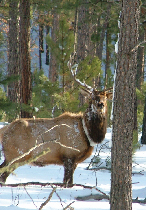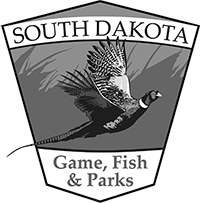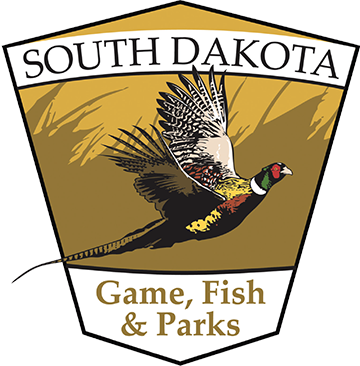Hunting Areas
South Dakota has over 5 million acres of hunting opportunity on public land as well as on private land leased for public hunting.
The South Dakota Public Hunting Atlas is a hunter's guide to all lands open to public access. Access includes federal and state-owned lands as well as private land leased for public hunting access.
The atlas contains maps and information on South Dakota's Walk-In Areas, Game Production Areas (GPAs), Waterfowl Production Areas (WPAs), School and Public Lands, National Forests and Grasslands, Bureau of Land Management (BLM) lands and other lands open to public hunting. The atlas is printed annually and available in early August. Check out the most recent updates available within the hunting atlas.
South Dakota is approximately 80 percent privately owned, and as a result, the vast majority of hunting that occurs across the state occurs on private land. Finding a place to hunt can be a challenging task at times, but is very achievable. This is best accomplished by demonstrating respect to the wildlife, the land and water that we recreate on, and of course, to the landowner.
Respect. Just a word on a paper, but a very powerful element of landowner relations that opens doors and creates rapport, and will ultimately benefit all hunters for years to come. Wildlife is owned by no one and is held in trust for the benefit of present and future generations. Hunting and fishing, and gaining permission to access private land are privileges.
Let’s help out our future generations on gaining access to private lands by demonstrating respect to the wildlife, the land and water we recreate on, and to the landowner.
Please remember these are privately owned lands and your actions while hunting on them can determine if they are open to public hunting in the future.
Private Landowners, for more information on how to enroll your property, click here.
 Walk-In Areas
Walk-In Areas
Privately owned lands, operating as working farms and ranches. Walk-In Areas are leased for public hunting access by the South Dakota Department of Game, Fish and Parks using money from the sale of hunting licenses and Federal Aid money from a tax on hunting equipment sales. No further permission from landowners is needed to hunt these areas. NO DRIVING is allowed on Walk-In Areas except on designated trails and parking areas.
 Conservation Reserve Enhancement Program (CREP)
Conservation Reserve Enhancement Program (CREP)
Open year round to public hunting and fishing access. CREP lands are owned by private individuals who have enrolled them in the Conservation Reserve Program (CRP) and signed a lease agreement with South Dakota Department of Game, Fish and Parks to provide public hunting and fishing access.
Administered by the USDA's Farm Service Agency, this program is a "state-sponsored" Conservation Reserve Program; providing additional undisturbed habitat for wildlife and public hunting access. In South Dakota, the focus is on improving water quality, reducing soil erosion and providing flood control while creating additional pheasant nesting habitat in the James River Watershed.
CREP participants receive higher rental rates than if they were to just enroll their land in CRP. Every acre enrolled in CREP is open to public hunting and fishing.
 Controlled Hunting Access Program (CHAP)
Controlled Hunting Access Program (CHAP)
Privately owned lands, operated as working farms and ranches, leased for public hunting access by the South Dakota Department of Game, Fish and Parks. Landowners are paid based on the number of hunters that use these lands. It is important that hunters using a CHAP area complete the required check in registration slip and drop it in the self-service box so hunter use can be properly counted. Lease payments are paid with money from hunting license sales.
CHAP is a cooperative effort between private landowners and the South Dakota Game, Fish and Parks to provide limited public hunting opportunities on private land. Landowners who enroll in CHAP have more control over hunter activities on their land; including controlling the number of hunters per day, the type of game that can be hunted, the type of seasons, the method of take (ex. archery only), and what days the CHAP is open.
Some CHAP areas require on-site registration, some require hunters to call the landowner to register and others use an online registration.
Once a registration is made, hunters need to deposit that registration in a check-in box located near a designated parking area on the CHAP property on the day of the hunt. Hunters should retain half of the registration as proof of permission until they have completed their hunt for the day. GFP requests that you drop the second half of the permission slip in the check-in box when you are done hunting for the day.
View current CHAP areasIf you have any questions or problems regarding the reservation system, please contact Mark Norton at mark.norton@state.sd.us or 605.773.3096.
 COOP Management Areas
COOP Management Areas
Privately owned lands, operating as working farms and ranches, leased for public hunting access by the South Dakota Department of Game, Fish and Parks. These leases are paid for using money from the sale of hunting licenses and Federal Aid money from a tax on hunting equipment sales. No further permission is needed from the landowner to hunt these areas. Driving on harvested fields is allowed to place and retrieve waterfowl decoys. Hunters with a disabled hunting permit are also allowed to drive on these areas to hunt any game. All other access is limited to foot traffic only. No hunting while farm machinery is present. Most are located in the north east part of South Dakota.
 Elk Hunting Access Program (EHAP)
Elk Hunting Access Program (EHAP)
The EHAP was developed to help address depredation complaints on private land and to increase hunter success. EHAP areas are lands owned by private individuals that are leased for public elk hunting access by the South Dakota Department of Game, Fish and Parks. Money from the sale of hunting licenses is used to pay the leases. There is no driving on these areas. Permission is needed to hunt these areas and can be received by directly contacting the landowner. Contact the GFP office in Rapid City at 605.394.2391 to learn how to access these areas.
 Lower Oahe Waterfowl Access Program
Lower Oahe Waterfowl Access Program
Privately owned lands, operating as working farms and ranches, leased for public hunting access by the South Dakota Department of Game, Fish and Parks primarily for field waterfowl hunting. More information.
 Game Production Areas
Game Production Areas
GPA's are generally managed for the production and maintenance of all wildlife. Although certain areas are managed for certain types of wildlife all wildlife benefit. South Dakota has approximately 730 Game Production Areas, totaling more than 281,000 acres.
 Waterfowl Production Areas
Waterfowl Production Areas
WPA's are owned by the U.S. Fish and Wildlife Service as satellites of the National Wildlife Refuge system. These areas are managed for the production of waterfowl, but other game and nongame wildlife thrive on them as well. There are 1,000 WPAs in South Dakota, totaling nearly 150,000 acres. Public hunting is one of the benefits these areas provide.
 Bureau of Land Management
Bureau of Land Management
BLM lands are open to public hunting, with the majority of surface acres located in 13 counties west of the Missouri River. A majority of the vegetation on BLM lands is prairie grassland or juniper woodlands. These lands are managed for livestock grazing, mineral extraction, forest management and recreation if public access exists. BLM manages over 274,000 surface acres, please check with the local BLM office to be aware of any specific rules or restrictions that may apply to these lands.
 Forest Service
Forest Service
The United States Forest Service manages over 2 million acres in the Black Hills and Custer National Forests and three national grassland units; Buffalo Gap, Fort Pierre and Grand River. These lands are all open to public hunting and fishing. Please check with the local USFS office to be aware of any specific rules, restrictions or travel plans that may apply to these lands.
School and Public Lands
The SD office of School and Public Lands manages over 750,000 acres of land. The majority of this land is located in the western half of the state. School lands are available to the public for hunting and fishing. These lands must be legally accessed; anyone crossing private land to access school land must have the permission of the private landowner. In most cases they are not posted with signs. Off-road travel is prohibited. No person may engage in hunting in any standing, unharvested crops on any school and public lands, unless the crop is designated for conservation or wildlife habitat. Public use of these lands is a privilege. If this privilege is abused, public use of school lands may be restricted.
Individuals are encouraged to provide comments on the lands they hunt. These comments may be submitted online and must include the specific property the hunter is commenting on as well as contact information for the hunter. Pictures may also be included in the comments as well.


